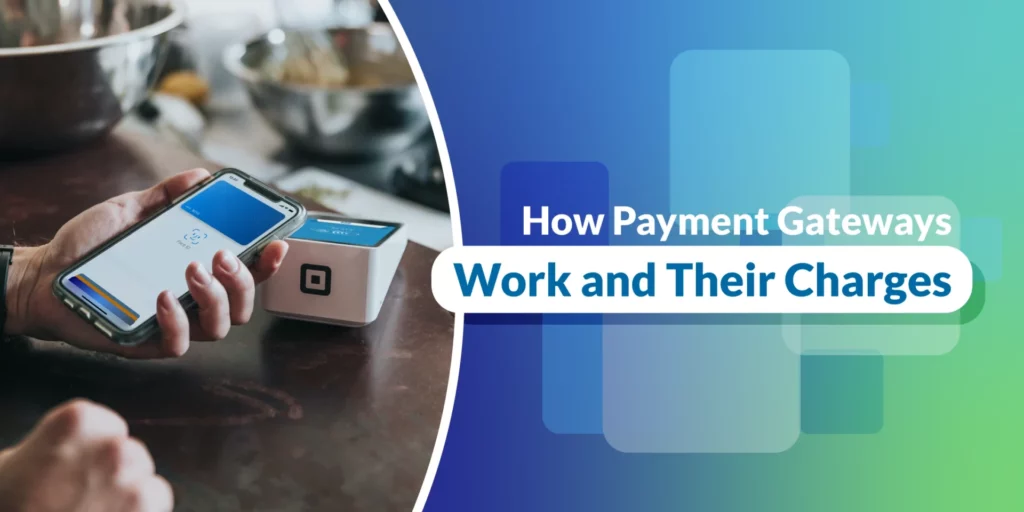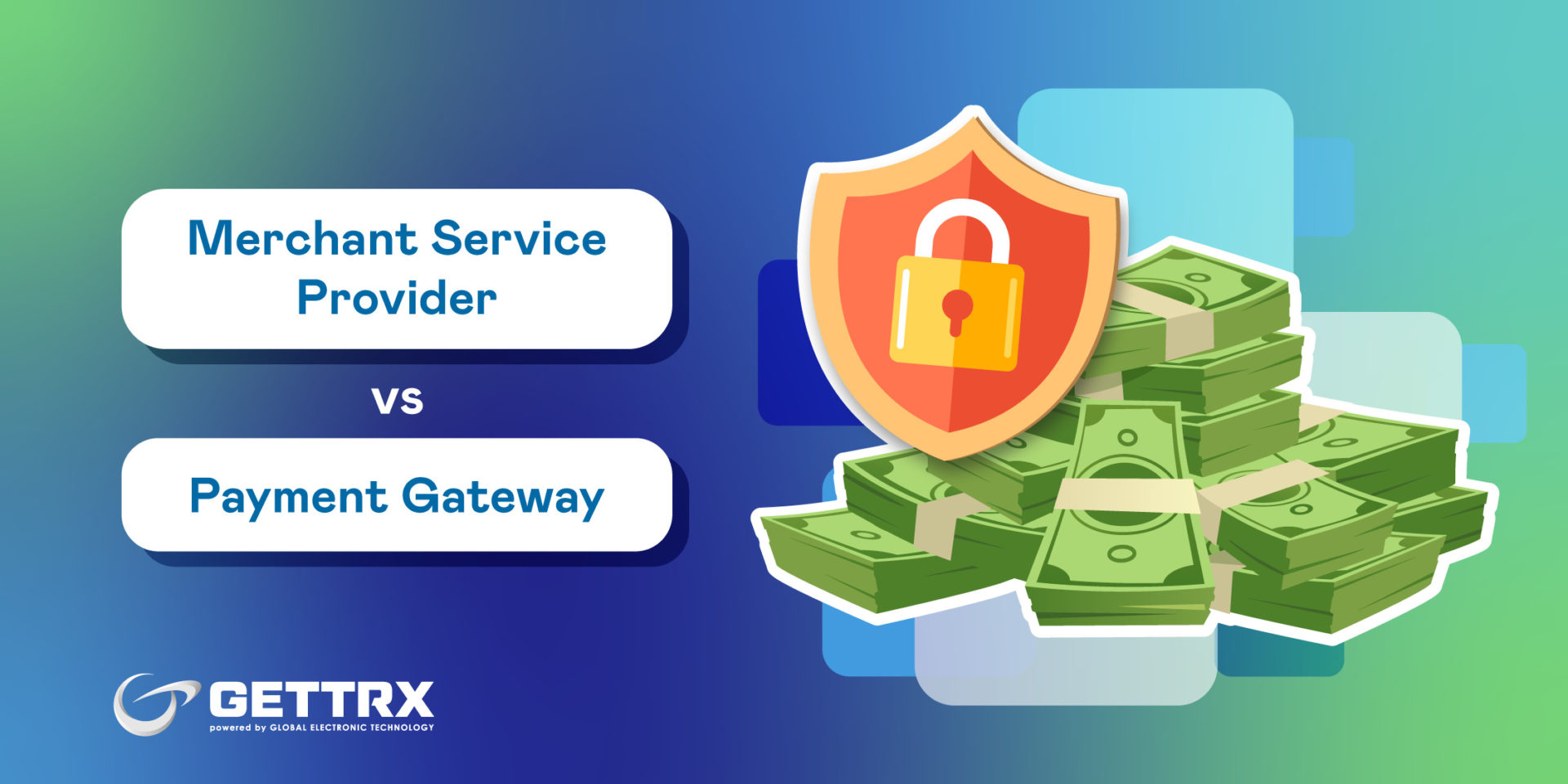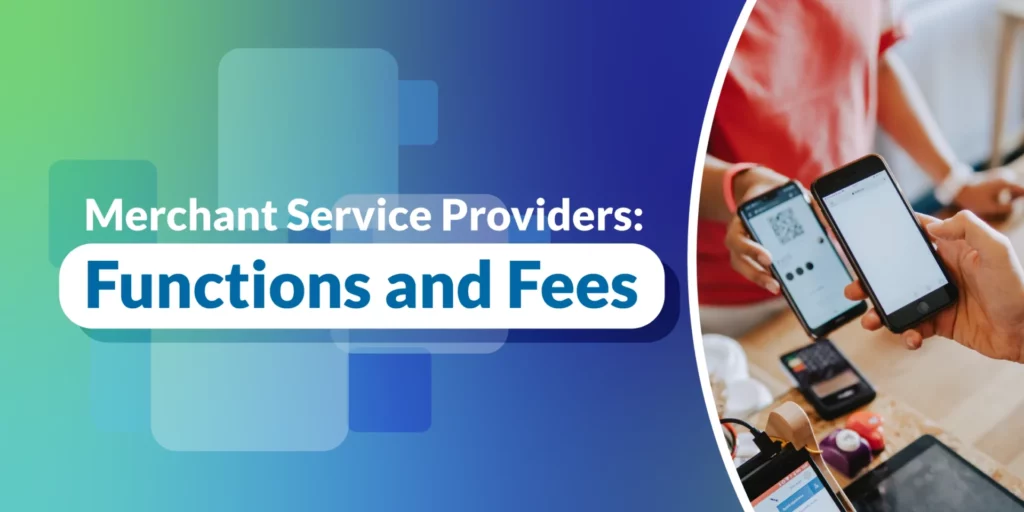Let’s face it; in today’s digital age, if you’re running a business, you need to be able to accept electronic payments.
Whether you’re selling products online or running a brick-and-mortar store, being able to accept credit and debit card payments is essential for staying competitive and meeting the needs of your customers.
However, the world of electronic payments can be complex and confusing, with various terms and concepts to understand. Two of the most important components of electronic payment processing are merchant accounts and payment gateways.
In this article, we’ll break down the differences between these concepts and help you understand which is right for your business.
So, let’s dive in and explore the world of merchant service providers and payment gateways!
Related Post: Evaluating the Differences Between an ISO and a PayFac
Table of Contents
- Key Takeaways
- What are Credit Card Merchant Services?
- What is a Merchant Account?
- What is a Merchant Service Provider?
- What is a Payment Gateway?
- How Payment Gateways Work:
- How Much Does Payment Gateway Charge?
- Difference between a merchant account and payment gateway
- Differences Between Merchant Service Providers and Payment Gateway
- Merchant Services Vs. Payment Gateways: Which is Best for Your Business?
- The Bottom Line – Payment Gateway Vs. Merchant Services Provider
Key Takeaways
- Payment gateways process online payments and securely transfer funds from the customer to the merchant.
- Fees charged by payment gateways can include transaction fees, monthly fees, setup fees, chargeback fees, and currency conversion fees.
- Different payment gateways may have different fee structures, so it’s important to research and compare options before selecting a provider.
- Merchant accounts allow businesses to accept electronic payments, typically through credit or debit cards.
- Merchant service providers provide electronic payment processing services to merchants, including merchant accounts, payment gateways, and other related services.
- Merchant service providers may offer various services beyond payment processing, such as chargeback management, fraud prevention, and reporting.
- Both payment gateways and merchant service providers must comply with strict regulations and security standards, such as PCI DSS, to ensure the security of customer data and payment information.
What are Credit Card Merchant Services?
Credit card merchant services refer to the various financial services and payment processing tools that enable businesses to accept credit and debit card payments from their customers.
These services typically include payment gateway integration, credit card processing, merchant account setup, and related security and fraud prevention measures.
The ultimate goal of credit card merchant services is to simplify payment transactions and improve the customer experience while helping businesses manage their cash flow and increase sales.
What is a Merchant Account?
A merchant account is an essential tool for businesses that want to accept credit and debit card payments from their customers. These are specialized bank accounts designed to facilitate the transfer of funds between the customer’s and merchant’s accounts.
When a customer makes a payment using their credit or debit card, the funds are first authorized by the customer’s bank and then transferred to the merchant’s bank account via the merchant account.
This process is facilitated by a network of financial institutions, including the customer’s bank, the merchant’s bank, and various intermediaries such as payment processors and card networks.
Merchant accounts are typically set up through merchant service providers (MSPs), which specialize in providing businesses with the financial services they need to accept electronic payments.
These providers work closely with banks and other financial institutions to set up and manage merchant accounts. They offer a range of value-added services to help businesses optimize their payment processing operations.
What is a Merchant Service Provider?
A merchant service provider (MSP) is a company that provides businesses with the tools and services they need to accept electronic payments.
MSPs are essential to the electronic payments ecosystem, serving as intermediaries between businesses, financial institutions, and payment networks.
They work behind the scenes to ensure that payments are processed quickly, securely, and accurately. MSPs also provide businesses with important tools and resources, such as fraud prevention services, chargeback management, and real-time reporting and analytics.
Overall, MSPs are critical in enabling businesses of all sizes to accept electronic payments and thrive in today’s digital economy.
What Do Merchant Service Providers Do?
Merchant service providers (MSPs) offer various services that help businesses accept electronic payments from their customers. Some of the key services that MSPs provide include:
- Payment processing: MSPs handle the technical aspects of payment processing, such as authorizing transactions, verifying customer information, and settling funds.
- Equipment and software: MSPs provide businesses with the equipment and software to accept electronic payments, including POS terminals, card readers, and payment gateways.
- Security and fraud prevention: MSPs help businesses to mitigate the risk of fraud by offering security features such as encryption, tokenization, and two-factor authentication.
- Chargeback management: MSPs help businesses to manage chargebacks – disputes initiated by customers – by providing tools and resources to help resolve disputes quickly and efficiently.
- Reporting and analytics: MSPs offer businesses real-time reporting and analytics tools that help them monitor their payment processing activity, track sales trends, and identify growth opportunities.
- Customer support: MSPs provide businesses with access to customer support resources, such as technical support and training, to help them optimize their payment processing operations.
Overall, MSPs help businesses navigate the complex world of electronic payments and ensure they can accept payments securely, efficiently, and cost-effectively.
Merchant Service Provider Fees
Merchant service providers (MSPs) charge various fees for their services, and it’s important for businesses to understand these fees to make informed decisions about their payment processing solutions.
Here are some of the most common fees that businesses can expect to pay when working with an MSP:
- Transaction fees: MSPs charge a fee for every processed transaction, typically a percentage of the transaction amount. This fee can vary depending on the card type (credit or debit), the type of transaction (swiped or keyed-in), and other factors.
- Monthly fees: Some MSPs charge a monthly fee for access to their payment processing services. This fee can cover a range of services, such as customer support, chargeback management, and reporting and analytics tools.
- Equipment fees: If a business needs to purchase or lease equipment, such as a POS terminal or card reader, they may be required to pay an equipment fee. This fee can vary depending on the type of equipment and the terms of the agreement.
- Setup and installation fees: Some MSPs charge a one-time setup or installation fee to cover the cost of getting a business set up with their payment processing services.
- Early termination fees: If a business wants to terminate their agreement with an MSP before the end of the contract term, it may be required to pay an early termination fee. This fee can be significant and should be carefully considered before agreeing with an MSP.
It’s important for businesses to carefully review the fee schedule provided by their MSP and to ask questions if they need clarification about any of the charges.
What is a Payment Gateway?
A payment gateway is a technology platform that enables businesses to accept online payments. They link the business’s website or app and the payment networks that process electronic payments.
When a customer makes a payment using their credit or debit card, the payment gateway securely transmits the payment information to the payment network, which then transfers the funds to the merchant’s bank account.
Payment gateways typically offer a range of features and benefits, including:
- Security: Payment gateways use advanced encryption and fraud prevention technologies to keep customer payment information secure and protected.
- Compatibility: Payment gateways are compatible with various payment methods and devices, including credit and debit cards, digital wallets, and mobile payments.
- Flexibility: Payment gateways can be integrated with various e-commerce platforms and shopping carts, making it easy for businesses to sell their products and services online.
- Customer support: Payment gateways offer businesses access to customer support resources, such as technical support and training, to help them optimize their payment processing operations.

How Payment Gateways Work:
1. Customer initiates payment:
The payment process begins when a customer initiates a payment by entering their payment information into an online form or swiping their card at a physical point-of-sale (POS) terminal. This information typically includes the customer’s name, credit or debit card number, expiration date, and security code.
2. Payment data is encrypted and sent to the payment gateway
Once the customer has entered their payment information, it is encrypted to ensure it remains secure during transmission. The encrypted payment data is then sent to the payment gateway for processing.
3. Payment gateway authorizes the transaction
The payment gateway receives the encrypted payment data and verifies the customer’s payment information to ensure that it is accurate and complete. The payment gateway also checks that the customer has sufficient funds to cover the transaction. If everything checks out, the payment gateway authorizes the transaction and prepares to send it to the acquiring bank.
4. Payment gateway sends transaction data to the acquiring bank
After the transaction has been authorized, the payment gateway sends the transaction data to the acquiring bank, responsible for processing the payment. The transaction data typically includes the customer’s payment information, amount, and unique transaction identifier.
5. Acquiring bank forwards transaction data to the issuing bank
Once the acquiring bank receives the transaction data from the payment gateway, it forwards it to the bank that issued the customer’s card. This is known as the issuing bank.
6. Issuing bank approves or declines the transaction
The issuing bank receives the transaction data from the acquiring bank and checks the customer’s account to ensure that they have sufficient funds to cover the transaction. The issuing bank also checks for any signs of fraud or suspicious activity. If everything checks out, the issuing bank approves the transaction and sends a response back to the acquiring bank.
7. Response is sent back through the payment gateway
Once the issuing bank has approved or declined the transaction, its response is sent back through the payment gateway to the merchant. The merchant then completes the transaction and finalizes the sale, issuing a receipt to the customer.
Throughout this process, payment gateways use advanced security and fraud prevention technologies to keep customer payment information secure and protected.
They also provide businesses with access to valuable reporting and analytics tools that allow them to monitor their payment processing activity and track sales trends
How Much Does Payment Gateway Charge?
The fees charged by payment gateways are not set in stone. They can vary depending on several factors, including the payment gateway provider, the type of transaction, the volume of transactions, and the geographic location of the transaction.
Here are some of the most typical fees charged by payment gateways:
- Setup Fee: This fee is charged by some payment gateways as a one-time fee to set up an account with them.
- Transaction Fees: This fee is charged on each transaction processed through the gateway. The transaction fee is usually a percentage of the transaction amount, typically between 2% and 3%, with a flat fee for transactions below a certain amount. It can also vary based on the type of transaction, such as a card-present transaction or a card-not-present transaction.
- Monthly Fees: Some payment gateways charge a monthly fee for access to their platform. This fee can be a fixed amount or a percentage of the total transaction volume processed through the platform.
- Chargeback Fees: If a customer disputes a charge, the payment gateway may charge a fee for processing the chargeback. This fee can range from $10 to $50 per chargeback and is intended to cover the costs of processing the dispute.
- International Fees: If the transaction involves an international payment, the payment gateway may charge an additional fee for processing the payment. This fee can vary based on the currency used and the transaction’s location.
Difference between a merchant account and payment gateway
The differences between a merchant account and payment gateway are as follows:
| Criteria | Merchant Account | Payment Gateway |
| Definition | A type of bank account that allows businesses to accept payments via debit or credit cards. | A service that processes online payments on behalf of merchants. |
| Purpose | To receive funds from customers for products or services sold. | To securely transmit payment data from the customer to the merchant’s acquiring bank. |
| Ownership | Owned by the merchant or the merchant’s business. | Owned by a third-party service provider. |
| Payment Processing | The merchant account is responsible for processing and accepting payments from customers. | The payment gateway is responsible for securely transmitting payment data to the acquiring bank for processing. |
| Relationship with Banks | Merchant accounts are typically held with a bank or financial institution. | Banks or financial institutions may own payment gateways, but third-party service providers typically operate them. |
| Security | Merchant accounts must comply with Payment Card Industry Data Security Standards (PCI DSS) to protect sensitive customer data. | Payment gateways use encryption and tokenization to protect customer data during transmission. |
| Integration | Merchant accounts can be integrated with payment gateways to facilitate online payments. | Payment gateways can be integrated with merchant accounts to facilitate payment processing. |
Differences Between Merchant Service Providers and Payment Gateway
Merchant service providers (MSPs) and payment gateways are both essential components of the electronic payments ecosystem, but they serve different roles and offer different services.
Here’s a breakdown of the differences between MSPs and payment gateways:
1. Service Offering
Merchant service providers typically offer various payment processing services, including credit and debit card processing, check processing, online payment solutions, and point-of-sale (POS) systems. Payment gateways, on the other hand, focus primarily on processing online payments.
2. Technical Expertise
MSPs are typically more specialized in the technical aspects of payment processing, such as managing merchant accounts, handling chargebacks, and providing fraud prevention services. On the other hand, payment gateways specialize in securely transmitting payment information between the customer, the merchant, and the financial institution that processes the payment.
3. Customer Support
MSPs often provide businesses with customer support resources, such as technical support and training, to help them optimize their payment processing operations. Payment gateways also offer customer support, but their services are typically more focused on resolving technical issues related to the processing of online payments.
4. Fees
MSPs and payment gateways charge fees for their services, but the fees can vary depending on the provider and the services offered. MSPs typically charge a range of fees for their services, including transaction fees, monthly fees, and setup fees. Payment gateways also charge fees for their services, including transaction and setup fees, but they may not charge monthly fees.
Merchant Services Vs. Payment Gateways: Which is Best for Your Business?
Merchant services and payment gateways serve different purposes, and the best choice for your business depends on your specific needs.
You are better off with a Merchant Service Provider if:
- Do you have a physical storefront or office
- You process a high volume of transactions
- You want to accept multiple payment types (credit cards, debit cards, checks)
- You want to offer customers the option to pay in installments
- Do you want to offer loyalty programs or gift cards
You are better off with a Payment Gateway if:
- You sell products or services online
- Do you have a mobile business or travel frequently
- You process a low volume of transactions
- You want to offer customers the option to save their payment information for future purchases
- Do you want to use a third-party shopping cart or platform
GETTRX offers merchant services and payment gateways with competitive rates and transparent billing. With just a few steps, businesses can eliminate every other processing fee for a flat monthly rate of $29. To learn more about our products, contact us now!
The Bottom Line – Payment Gateway Vs. Merchant Services Provider
In conclusion, merchant services and payment gateways are essential to accepting credit card payments. The best option for your business depends on your specific needs and the type of payments you want to accept.
You can choose the payment processing solution that works best for your business by evaluating your needs and comparing different service providers.








